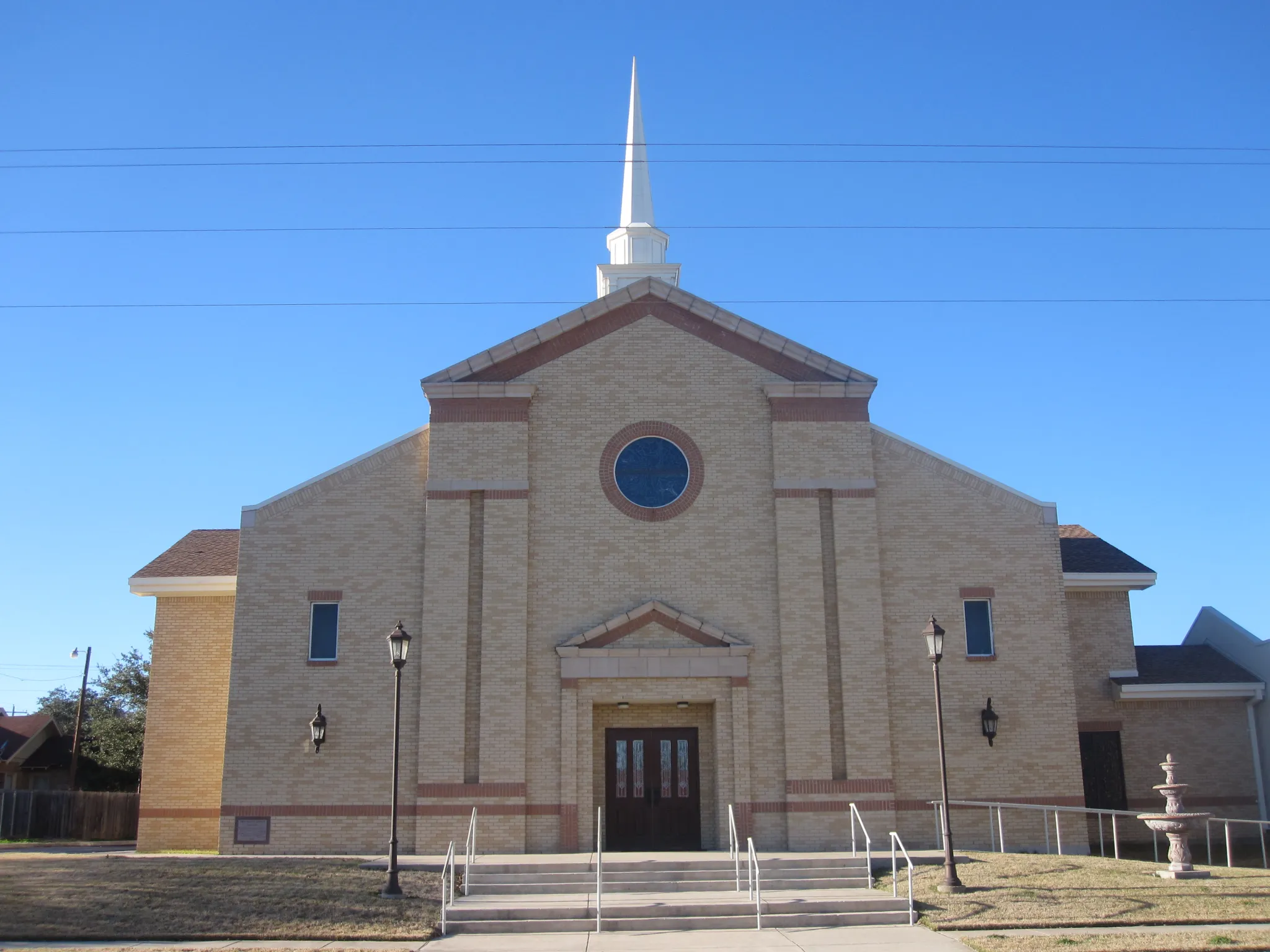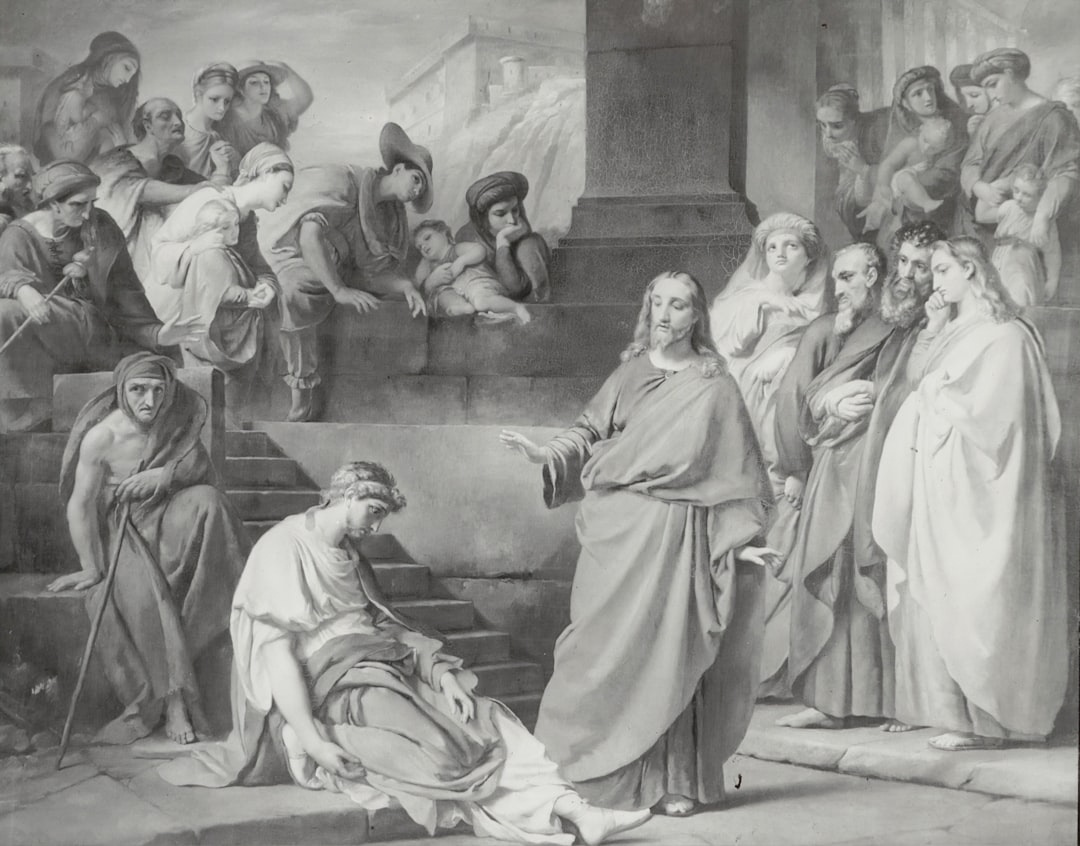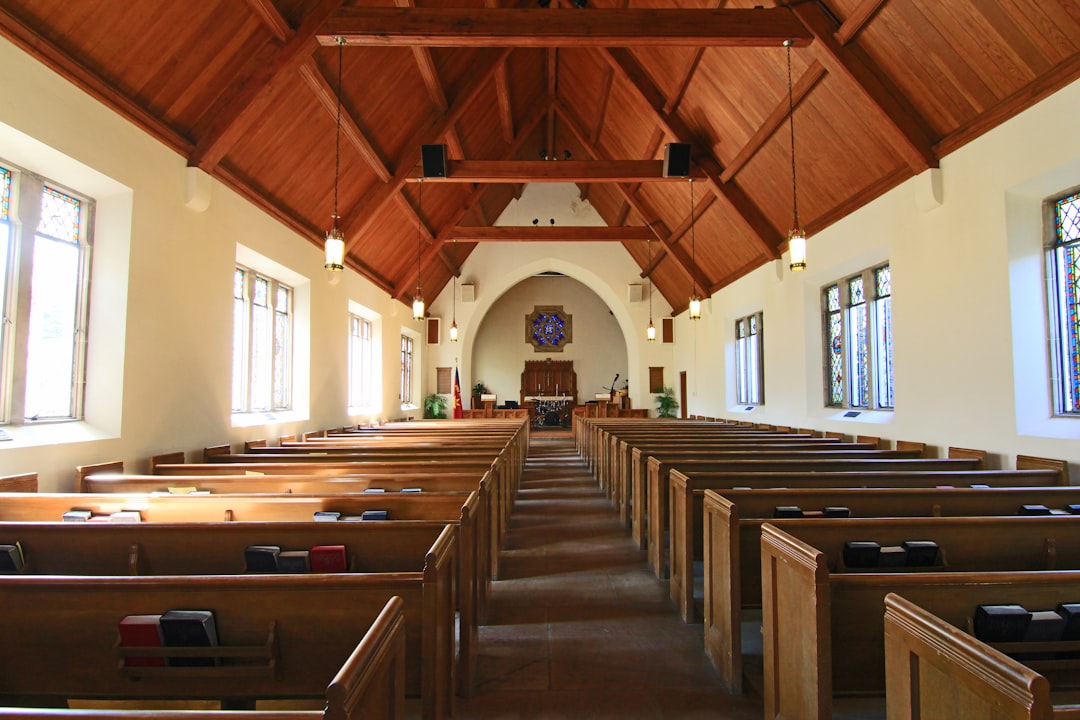If you’re curious about Missionary Baptist Church, then you’ve come to the right place. This religious institution has a rich history to explore, from its beliefs and practices to its culture and impact on society. Whether you’re a member of a Missionary Baptist Church or just interested in learning more, keep reading to discover fascinating insights and details about this denomination.
Beliefs of Missionary Baptist Church

When it comes to religion, understanding the beliefs is essential in comprehending its culture, history, and practices. If you’re curious about the beliefs of Missionary Baptist Church, you’ve come to the right place. Here’s a rundown of what they believe:
- Bible is the Word of God – as a result, it is the ultimate authority for the Church.
- Trinity – They believe that God exists as three individuals in one: God the Father, God the Son, and God the Holy Spirit.
- Faith in Jesus Christ – Missionary Baptists believe in Jesus Christ, his life, teachings, and resurrection, and they acknowledge him as their savior.
- Regeneration – They believe that the process of salvation is a personal one and that there is only one way to experience it. You must confess your wrongdoings, believe that Jesus Christ is the only way to salvation, and ask for forgiveness.
- Believer’s Baptism – For Missionary Baptists, baptism is an outward expression of an inner decision to follow Jesus Christ. Baptism is considered to be an act of obedience and is administered to adults only.
- Religious Authority – In Missionary Baptist Church, the individual is the ultimate authority. Each person must establish their own relationship with God and ensure that their actions align with their beliefs.
As you can see, the beliefs of Missionary Baptist Church are straightforward and follow traditional Christian beliefs. Their faith in God, Jesus Christ, and the Holy Spirit is the foundation of their beliefs, and they believe salvation is accessible through faith and repentance. As an individual, they acknowledge that it is their responsibility to establish a relationship with God.

The beliefs of Missionary Baptist Church are not complex. They believe in the Bible’s teachings, trusting in Jesus Christ for salvation and becoming baptized as an indication of their commitment to Christ. Their beliefs serve as a framework that reflects their desire to live out their faith in the natural world, gives hope in challenging situations, and reminds them of God’s love.
In conclusion, believing in something bigger than oneself brings comfort and a sense of belonging to a community. For Missionary Baptist Church members, their profound beliefs guide their way of life, worship, and community in Christ.
History and Origins of Missionary Baptist Church
Missionary Baptist Church has a deep and rich history that dates back to the early 19th century. It emerged in the southern region of the United States, particularly in Mississippi, as a response to the growing Baptist movement of the time. The movement emphasized the importance of personal faith and baptism, which created a division within the Baptist community.
The Baptist churches in the South were divided into two groups: those who supported the idea of missionary societies and those who opposed it. The former believed that it was important to establish a centralized Baptist organization that would manage mission activities and outreach efforts. The latter believed that each church should be independent and self-sufficient, without the need for a centralized organization.
The Missionary Baptist Church was born out of this division. It was formed by those who opposed the idea of centralized missionary organizations and wanted to maintain the autonomy of each church. They believed that every Baptist church should have the freedom to carry out missionary work and outreach activities on their own.
The Missionary Baptist Church has always been a fundamentalist denomination, emphasizing the authority of the Bible and the importance of salvation through faith in Jesus Christ. Its members also believe in the importance of baptism as a symbol of a believer’s acceptance of Jesus Christ as personal Savior.
Over the years, the Missionary Baptist Church has played a significant role in the spread of Christianity, particularly in the South. It was instrumental in establishing many schools, churches, and other institutions that have helped the community grow and prosper.
Today, the Missionary Baptist Church is still a thriving denomination with millions of members worldwide. It continues to emphasize the importance of personal faith and evangelism, and remains deeply committed to the teachings of the Bible. As such, it remains a vital force in the Christian community, both in the South and around the world.
Life and Practices of a Missionary Baptist Church Member
As a member of a Missionary Baptist Church, you will find that the beliefs and teachings inform your daily life and practices. Here are some key aspects of life in a Missionary Baptist Church:
-
Worship: Members of Missionary Baptist Churches typically worship through traditional hymns and gospel music, prayer, scripture readings, and preaching. Services often include altar calls for individuals to come forward and publicly profess their faith or to seek prayer.
-
Baptism: Missionary Baptists believe that baptism is an essential part of becoming a Christian. Baptism is typically done by immersion, and it symbolizes the individual’s commitment to follow Christ.
-
Serving: Missionary Baptists often prioritize serving others as a part of their faith. This can take the form of volunteering in the church or community, donating to charitable causes, and more.
-
Fellowship: Community is important to Missionary Baptists, and many churches organize social events and gatherings to build relationships and support one another.
-
Tithing: Members of Missionary Baptist Churches are often encouraged to tithe, or give a portion of their income to support the church and its ministries.
-
Bible Study: Studying the Bible is a key component of living out one’s faith as a Missionary Baptist. Members may participate in Sunday School or other regular Bible study groups to deepen their understanding of scripture and its application in daily life.
-
Evangelism: Missionary Baptists believe in sharing the gospel with others and may participate in evangelistic efforts such as outreach events or door-to-door visits.

By practicing these beliefs and behaviors, Missionary Baptist Church members seek to grow in their faith and serve their community with love and compassion.
Culture and Traditions of Missionary Baptist Church
When it comes to the culture and traditions of a Missionary Baptist Church, there is a strong emphasis on community and family. Members of this church often refer to themselves as a “church family,” and they take that designation to heart. The church community is a central part of life, and members are encouraged to support one another through prayer, fellowship, and service.
In terms of worship, Missionary Baptist Churches tend to be more conservative in style. Music is an important part of the worship experience, with many hymns sung during the service. The focus is on worshiping God in a way that is simple and sincere, rather than flashy or showy. Many churches do not have formal liturgies, but instead allow the pastor to lead the service in a way that feels most appropriate.
There are a number of traditions that are important to the Missionary Baptist Church. The most important is Baptism, which is viewed as an essential step in accepting Jesus Christ as your Lord and Savior. Baptism is done by immersion, with the person being fully submerged in water as a symbol of their spiritual rebirth.
In addition to Baptism, Missionary Baptist Churches also place a strong emphasis on regular attendance at church. Members are encouraged to attend services each Sunday, as well as participate in other church events and activities throughout the week. This helps to strengthen the sense of community and belonging that is so important to this church.
Another tradition that is important to the Missionary Baptist Church is tithing. Members are asked to give 10% of their income to the church, which helps to support the work of the church, as well as various missions and outreach programs.
« Unveiling the Mystery: Understanding the Leaven of the Pharisees
Unveiling the Controversial Identity of the Judaizers in Early Christianity »
Finally, the Missionary Baptist Church has a strong tradition of evangelism. Members are encouraged to share their faith with others, with the goal of bringing more people into the church and sharing the love of Jesus with the world.
In all of these traditions and practices, the Missionary Baptist Church seeks to remain true to its roots while also adapting to the changing needs of its members and society. Whether through music, community service, or evangelism, the focus is always on living out the teachings of Jesus Christ in a way that is both faithful and relevant to the modern world.
Leadership and Governance in Missionary Baptist Church
As a member of a Missionary Baptist Church, you may notice that the church takes leadership and governance very seriously. Here are some key aspects to keep in mind:
-
Pastoral leadership: In a Missionary Baptist Church, the pastor is viewed as the spiritual leader of the congregation. They are responsible for preaching and teaching the Word of God, providing pastoral care and spiritual guidance to members, and overseeing the general operations of the church. In some cases, the pastor may also have administrative duties, such as overseeing the church’s finances.
-
Deacon ministry: Deacons are selected members of the congregation who help support the pastor in his leadership role. Their primary role is to serve the people of the church, whether through prayer, offering assistance, or leading various ministries within the congregation. They often function as the pastor’s right-hand men, and may be involved in teaching, visitation, and evangelism.
-
Church government: Missionary Baptist Churches are typically organized into local, independent bodies with no central hierarchy or government controlling them. This means that each church congregation is responsible for its own internal governance, including things like hiring staff, budgeting, and making decisions on behalf of the congregation as a whole. Some churches may also have a board of directors or other governing body responsible for making key decisions and overseeing church operations.
-
Church discipline: In order to maintain the spiritual purity of the congregation, Missionary Baptist Churches often emphasize the importance of church discipline. This involves confronting members who are living in violation of Biblical principles, and either working to reconcile them with the church or removing them from membership if necessary. This process is usually overseen by the pastor and deacons, and is designed to help keep the congregation unified and focused on God’s plan.
-
Lay leadership: Although the pastor and deacons play important roles in leading the church, they are not the only leaders within the congregation. Laypeople are also encouraged to take on leadership roles within the church, whether through teaching, evangelism, or other forms of ministry. This helps ensure that the church remains a vibrant and active community of faith, with many members contributing their gifts and talents to the cause of Christ.

By understanding the leadership and governance structure of Missionary Baptist Churches, you can better appreciate the important role that these churches play in the lives of their members. Whether you serve as a pastor, deacon, or lay leader within the church, you have an opportunity to make a difference and help shape the future of your congregation.
Missionary Baptist Church’s Role in Society and the Civil Rights Movement
As you explore the beliefs, history, and culture of the Missionary Baptist Church, it’s essential to understand its role in society and the Civil Rights Movement. The Missionary Baptist Church has been a prominent fixture in the African American community since its inception, and it has played a significant role in promoting social righteousness and justice.
During the Civil Rights Movement, the Missionary Baptist Church played a pivotal role in promoting social activism. Many pastors, church members, and community leaders were instrumental in organizing and leading marches, sit-ins, and other nonviolent protests aimed at ending discrimination and segregation. The Reverend Martin Luther King, Jr., who was himself a Baptist pastor, often spoke at Missionary Baptist Churches, detailing the importance of faith in promoting civil rights and social equality.
The Missionary Baptist Church’s role in the Civil Rights Movement was not limited to marches and protests. Many congregations also opened their doors to provide safe havens and resources for displaced families, civil rights workers, and others affected by discrimination and violence. Through acts of kindness, charity, and advocacy, the Missionary Baptist Church worked tirelessly to bring about a more equitable and just society.
Today, Missionary Baptist Churches continue to be active participants in promoting social justice and inclusion. Many churches organize community outreach programs, such as food banks, youth programs, and homeless shelters to provide support to those in need. They also participate in interfaith initiatives to promote peace and understanding between different religious groups and denominations.

In conclusion, the Missionary Baptist Church has a long and rich history of promoting social justice, equal rights, and social righteousness. The Church’s teachings and values have led it to be at the forefront of social activism, advocating for those who are marginalized, oppressed, and facing injustice. Through acts of love, charity, and advocacy, the Missionary Baptist Church continues to make a significant impact on society today, just as it did during the Civil Rights Movement.












